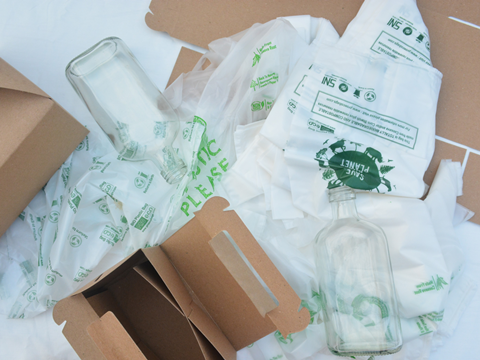
Circular Bio-based Europe Joint Undertaking (CBE JU) has opened a call for project proposals in a bid to stimulate a circular economy for biobased materials in Europe, offering a total of €213 million to eighteen successful applicants.
The call budget stems from the EU’s research and innovation funding programme, Horizon Europe, and it is published on the EU’s funding and tender opportunities portal. It is intended to support the scaling up of technologies in pursuit of industrial deployment, and boost investment and job creation at regional and local levels.
It is set to align with the CBE JU objectives – accelerating the innovation and development of new biobased solutions; taking existing and mature biobased solutions through market deployment; and ensuring strong environmental performance for biobased industrial systems.
A range of stakeholders – including brand owners, companies, research organizations, local authorities, farmers, and more – are encouraged to participate by submitting their proposals electronically.
Three types of projects have been invited for funding. Firstly, Innovation Actions (IAs) intend to scale up activities from prototype to product validation and market replication.
Each project under this umbrella will receive €15 million in funding. Its topics include biobased materials and products designed for in-soil biodegradability; utilizing microalgae as feedstock for added-value applications; and expanding the portfolios of commercially produced ‘Safe and Sustainable by Design’ (SSbD) solvents.
Circular and SSbD biobased materials with functional properties for the construction and building sector; selective, sustainability-minded co-production of aromatics derived from lignin; biobased adhesives and binders to help ‘circular’ products meet market requirements; and the conversion of biogenic gaseous carbon into biobased chemicals, ingredients, and materials are also listed here.
Within the IAs category, Flagships (IA-FLAGs) is set to deploy the first-of-its-kind industrial and commercial scale production plant onto the European market. It sets its sight on three biobased avenues – value chains for the valorization of sustainable oil crops; value chains for the valorization of sustainable natural fibre feedstock; and the cost-effective, resource-efficient conversion of biomass into dedicated platform chemicals – with each receiving €20 million.
Research and Innovation Actions (RIAs) aim to test the feasibility of new or improved technology, products, processes, services, or solutions, or otherwise establish new knowledge. €10 million will be dedicated to the development of biobased alternatives for crop protection.
Each of the four other innovations will receive €7 million. This constitutes the valorization of polluted or contaminated wood from industrial and post-consumer waste streams; biotech routes to replace animal-derived chemicals and materials with biobased alternatives; SSbD biobased coating materials for use in demanding and/or extreme conditions; and innovative biobased food or feed ingredients.
Additionally, Coordination and Support Actions (CSAs) are designed to, among other objectives, structure stakeholder communities; support technological visions and outreach; and share and make use of research results.
One project focused on new forms of cooperation in agriculture and the forest-based sector will receive €4 million. The other two will receive €3 million; these will aim to support the CBE JU Deployment Group on Primary Producers and mobilize inclusive participation in biobased systems, supporting the CBE JU widening strategy and its action plan.
The call will close on 18th September 2024. At this point, CBE JU will work with external experts selected from the European Commission’s expert database to organize the evaluation of the submitted proposals. The criteria for this process is laid out in the CBE JU Annual Work Programme 2024.
In early February 2025 at the latest, the proposals selected for funding will be revealed. Provided that the subsequent Grant Agreement Preparation (GAP) is successful, agreements with the selected project teams will be signed by mid-May 2025.
More information regarding proposal submission is available via the Horizon Europe online manual. Applicants are encouraged to contact the Research Enquiry Service or IT helpdesk for any procedural or IT-related questions, while specific questions related to CBE JU should be directed to the contact information on its website.
An FAQ is also available for applicants, with a Q&A related to topic interpretation available in section 6.
In similar news, AIMPLAS recently revealed its involvement in the EU-funded SYMBA project, which hopes to stimulate circularity within the biobased industrial ecosystem using AI-driven solutions.
Additionally, Saveggy’s edible, plant-based coating – a solution designed to extend the shelf life of fruits and vegetables – has received €1.76 million in investments from Unconventional Ventures, LRF Ventures, Almi Invest GreenTech, and industry angels.
If you liked this story, you might also enjoy:
The Brief: How viable is biorecycling for plastics?
Report: How the top brands are progressing on packaging sustainability
The Brief: Using ocean-bound plastic in packaging – how, why and should we?













No comments yet